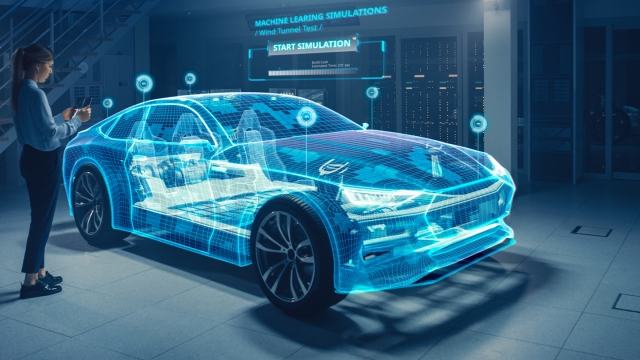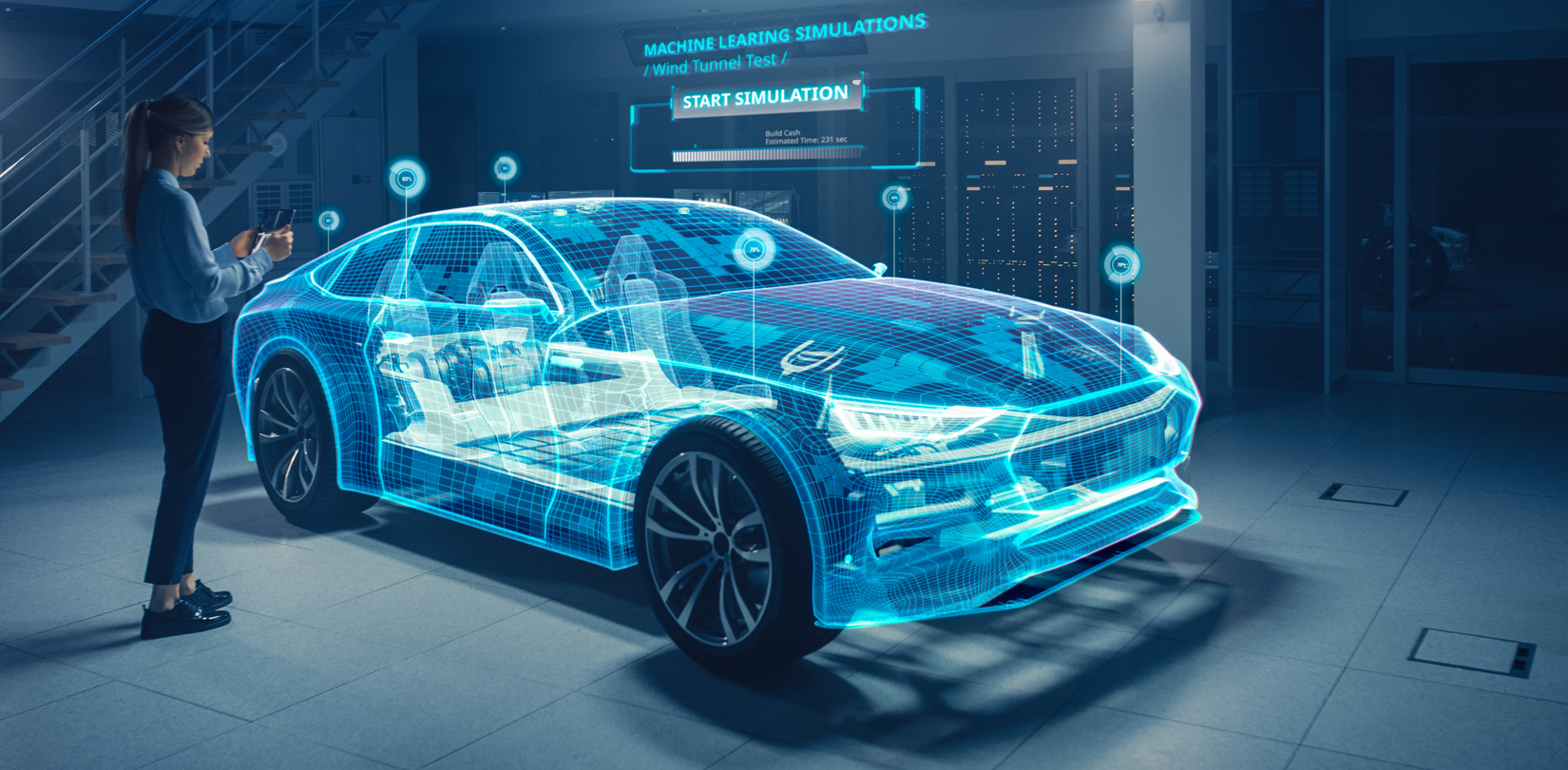
The Future of Driving: Unveiling the Automotive Revolution
- by Jose Bryant
The automotive industry is at the brink of a revolution, with groundbreaking advancements and innovations paving the way for a futuristic driving experience. As we step into the era of smart cars, autonomous vehicles, and electric powertrains, it becomes imperative to stay informed about the ever-evolving automotive landscape. Whether you are an avid car enthusiast or a prospective buyer seeking expert guidance, "WhichCar.org" is here to assist you in navigating the vast and dynamic world of automobiles.
At "WhichCar.org," our team of automotive experts diligently analyzes each car, meticulously scrutinizing its power, luxury, features, and worth. We understand the importance of making well-informed choices when it comes to such a significant investment. That’s why we provide you with comprehensive tools to compare different models, ensuring that you can make a wise decision that aligns with your needs and preferences.

So, buckle up and get ready to embark on this automotive journey with us. From electric vehicles revolutionizing sustainability to autonomous driving technologies reshaping the way we commute, the future of driving holds immense potential. Stay tuned as we uncover the latest trends, review cutting-edge models, and explore the innovative ideas shaping the automotive industry. Join us as we unveil the automotive revolution that lies ahead.
The Evolution of Vehicle Technology
As automotive technology continues to advance at an impressive pace, we find ourselves on the brink of a revolution in the way we drive. From the early days of horse-drawn carriages to the sleek and powerful vehicles of today, the automotive industry has seen significant progress.
In the past, cars were primarily powered by internal combustion engines that relied on fossil fuels. However, we are now witnessing a shift towards electric vehicles (EVs) that utilize clean and renewable energy sources. This transition not only helps reduce our carbon footprint but also promotes a more sustainable future for transportation.
mustang dark horse
Alongside the rise of EVs, we have witnessed the integration of cutting-edge features and technologies into our cars. From advanced driver-assistance systems (ADAS) that enhance safety and convenience to sophisticated infotainment systems that provide endless entertainment options, vehicles have become more than just a mode of transportation.
Furthermore, connectivity has played a crucial role in shaping the automotive revolution. With the advent of the Internet of Things (IoT), cars can now communicate with each other and with the infrastructure around them. This has paved the way for intelligent transportation systems, enabling smoother traffic flow and reducing accidents.
As we embark on this journey towards the future of driving, it is essential to have access to reliable information that helps us make informed decisions when purchasing a vehicle. At "WhichCar.org," our team of experts meticulously studies each car, evaluating factors such as power, luxury, features, and overall worth. We provide you with the necessary tools to compare different models, empowering you to make a wise choice that suits your needs and preferences.
The automotive revolution is underway, and with each passing day, we witness new advancements that push the boundaries of what is possible. As technology continues to evolve, our driving experiences will undoubtedly transform, creating a safer, more efficient, and exciting future on the roads. Stay tuned as we delve deeper into the automotive industry and explore the remarkable innovations that lie ahead.
The Rise of Electric Vehicles
In recent years, there has been a remarkable surge in the popularity of electric vehicles (EVs). As concerns about climate change and air pollution continue to grow, more and more people are turning to these eco-friendly alternatives to traditional gasoline-powered cars.
One of the main driving forces behind the rise of electric vehicles is the advancement in battery technology. With improvements in energy storage, EVs can now travel longer distances on a single charge, making them a practical option for daily commuting and even road trips. Additionally, the development of fast-charging infrastructure has significantly reduced charging times, addressing one of the key concerns of potential EV buyers.
Another factor contributing to the rise of EVs is the increasing availability of models from various automakers. Previously, the electric vehicle market was dominated by a few pioneering companies. However, as technology has advanced and consumer demand has grown, more and more manufacturers are entering the market. This has resulted in a wider range of electric vehicle options, catering to different budgets and preferences.
The environmental benefits of electric vehicles are also a significant driving factor behind their increasing popularity. As the world seeks to reduce greenhouse gas emissions, transitioning to electric vehicles can play a crucial role. EVs produce zero tailpipe emissions, helping to improve air quality and reduce the overall carbon footprint of the transportation sector.
In conclusion, the rise of electric vehicles signifies a significant shift in the automotive industry. With advancements in battery technology, increased model availability, and the environmental advantages they offer, electric vehicles are poised to revolutionize the way we drive. As we move towards a greener and more sustainable future, electric vehicles will undoubtedly play an increasingly prominent role in the automotive landscape.
Advancements in Autonomous Driving
Autonomous driving technology has been making significant strides in recent years, revolutionizing the automotive industry. With the development of sophisticated sensors and advanced software algorithms, self-driving cars are becoming a reality on our roads.
One of the key advancements in autonomous driving is the improved perception capabilities of these vehicles. Equipped with a range of sensors such as cameras, radars, and lidars, self-driving cars can perceive their surroundings with remarkable accuracy. These sensors capture data about the environment, allowing the car’s system to understand and interpret road conditions, traffic signs, and the behavior of other vehicles and pedestrians.
Another area of advancement is the development of advanced artificial intelligence (AI) algorithms that can process the vast amount of sensor data and make real-time decisions. These AI algorithms have the ability to analyze complex scenarios, predict future events, and respond accordingly, ensuring safe and efficient navigation.
Furthermore, advancements in the connectivity of autonomous vehicles have opened up new possibilities for enhanced functionality. With the advent of 5G technology, self-driving cars can communicate with each other and with smart infrastructure, enabling them to share information about road conditions, traffic congestion, and potential hazards. This connectivity also paves the way for the integration of autonomous vehicles into smart cities, optimizing transportation systems and reducing traffic congestion.
Overall, the advancements in autonomous driving technology are transforming the way we travel. With improved perception capabilities, advanced AI algorithms, and enhanced connectivity, self-driving cars are set to provide safer, more efficient, and convenient transportation solutions in the future.
The automotive industry is at the brink of a revolution, with groundbreaking advancements and innovations paving the way for a futuristic driving experience. As we step into the era of smart cars, autonomous vehicles, and electric powertrains, it becomes imperative to stay informed about the ever-evolving automotive landscape. Whether you are an avid car enthusiast…